You didn’t pay $150,000+ for law school just to lose thousands in missed cases each month.
But here’s the truth: If your law firm isn’t showing up on the first page of Google, you’re losing clients — plain and simple. 75% of users never scroll past page one.
On top of that, today’s searchers don’t comb through the blue links on search. They turn to Google’s AI summary for answers, whether they’re looking for a divorce lawyer in their area or the ingredients for a delicious homemade spaghetti.
In this guide, we’ll break down 12 proven law firm SEO tactics to boost your visibility, attract better cases, and stay ahead in our AI era. Let’s get into it.
Part of Our SEO Guide for Law Firms
Explore each part of our complete guide to mastering SEO for law firms:
The Competitive Advantage Law Firms Need: SEO for Lawyers
Imagine this: A potential client in your city searches “best [practice area] lawyer near me.”
But your firm doesn’t appear. Your competitor does. And just like that, you’ve lost a case before you even knew it existed. This is the reality for most law firms in 2025.
Why Law Firm SEO Matters Now More Than Ever
- 92% of people use Google as their first stop when searching for legal help.
- 66% of clients research online before contacting a lawyer.
- 75% of users never scroll past the first page of search results.
If your firm doesn’t rank near the top, you’re essentially invisible. However…
It’s Not Just About Rankings — It’s About Being Found
SEO helps your law firm do more than just rank, it also helps you:
- Show up when clients need you the most
Whether it’s a car accident or a legal dispute, people turn to Google first. SEO ensures your firm appears in the right place, at the right time. - Inspire confidence
When you consistently show up with helpful content, your firm looks credible and competent, even before someone calls to find out more. - Get high-quality leads without the ad spend
SEO keeps working 24/7, unlike paid ads that stop when your budget runs out.
The Game Has Changed: AI Is Reshaping Search
Does SEO for Lawyers Still Matter? Search isn’t what it used to be. Platforms like Google SGE, Bing AI, and ChatGPT now deliver instant, AI-generated answers — no scrolling, no clicking, just results. That means traditional SEO alone won’t cut it anymore.
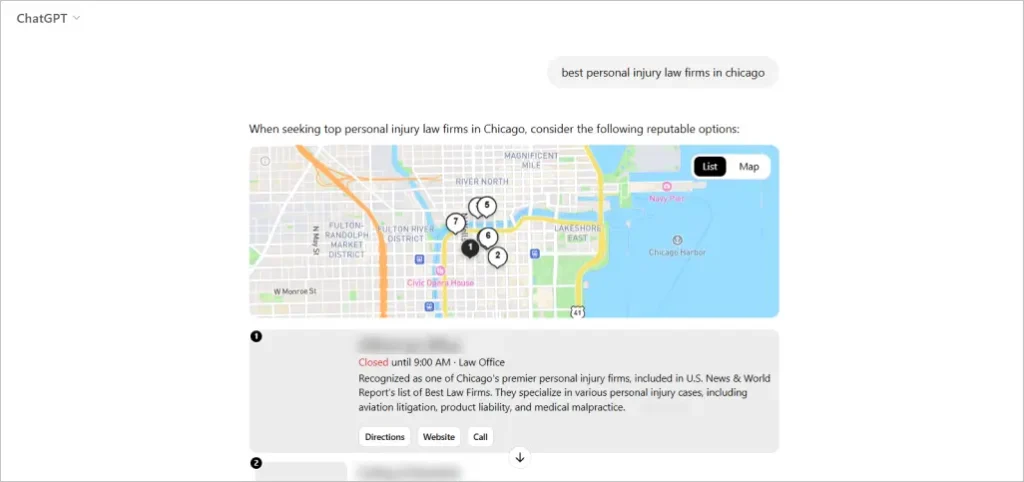
These AI systems decide which firms get featured and which get ignored based on clarity, structure, and trust signals. If your content isn’t optimized for AI search, it may never be seen.
That’s right. Even if you’re the best attorney in town, AI could make you invisible.
This SEO Lae Firm Guide Is Your Edge
We’re about to show you what actually works in 2025 — from SEO basics to AI-powered strategies — to help your law firm rank higher, get more calls, and stay ahead of the curve.
New to SEO? You’re not alone.
Get clear, jargon-free answers to the most common law firm SEO questions in our quick-start guide.
Law Firm SEO Starter Pack: The Most Crucial Factors for Lawyers Today
When someone searches “car accident lawyer near me” or “how to file for divorce in [your city],” they’re not casually browsing — they’re likely ready to hire. And if your law firm isn’t at the top of search engine rankings, they’re not going to see you.
That’s where SEO, or search engine optimization, comes in.
What Is SEO for Lawyers?
SEO for lawyers stands for Search Engine Optimization — the process of improving your law firm’s visibility on search platforms where potential clients are actively looking for legal help. While many think of SEO as just ranking on Google, true SEO goes far beyond that.
Today, people search for legal services not only on Google but also on platforms like Google Maps, Bing, YouTube, AI tools like ChatGPT and Perplexity, voice search (Siri, Alexa), and legal directories like Avvo or Justia. Optimizing your presence across all of these search engines and platforms is what modern SEO is really about.
Why Does It Matter for Lawyers?
SEO helps your law firm show up when people search for the legal services you offer. When done right, it helps you:
- Attract high-intent clients without paying for ads
- Build credibility by appearing at the top of search results
- Generate leads consistently, without any daily effort on your part
What Google Looks for in Legal Websites
To dominate search engine results pages, you must prioritize certain key SEO ranking factors:
- Content quality: Clear, helpful pages that answer real questions
- Keywords: Terms your clients actually search for
- Backlinks: Links from trusted legal sites, bar associations, or directories
- User experience: Fast, mobile-friendly, easy-to-navigate websites
Law firms also fall under Google’s “Your Money or Your Life” (YMYL) category, meaning your content must meet strict standards. Because legal advice can impact someone’s safety, finances, or freedom, Google sets a higher bar for accuracy, trustworthiness, and authority.
Why Legal SEO Is Unique
It’s competitive, regulated, and hyper-local. You can’t cut corners with overhyped claims or vague content. And if your Google Business Profile or city-specific pages are missing, clients will find the next firm instead.
The good news? A focused SEO strategy can help you rise above the intense competition and bring clients directly to your door!
SEO for Lawyers in the Age of AI Search
Just a few years ago, someone looking for legal help might type a short phrase like “car accident lawyer Chicago” into a search engine and scroll through a list of websites.
Today, that same person is more likely to ask a full question like, “What should I do if I was in a car accident in Chicago and the other driver didn’t have insurance?”
Instead of simply showing a list of links, modern search platforms now provide AI-generated answers that summarize the most relevant information — often highlighting law firms, services, and next steps. These responses appear instantly, reshaping how people discover and choose legal professionals.
For law firms, this shift means your content needs to do more than rank — it needs to be clear, relevant, and optimized for how real people ask real questions.
How AI Search Works (and Why It’s Different)
Traditional search engines rely on matching exact keywords and ranking pages based on links and technical signals.
AI-driven search, on the other hand, uses advanced language models, machine learning, and contextual analysis to interpret the meaning behind a query. Instead of just matching words, it delivers concise, relevant answers—even when the question is long, complex, or conversational.
In fact, by mid-2024, Google’s SGE had already started reducing traditional click-through rates by as much as 30% on some keywords — especially in industries like law, where direct answers are in high demand.
Why Your Law Firm’s Website Needs to Be Optimized for How People Actually Search
Enter Google’s RankBrain AI — a powerful machine learning system that helps Google understand what users really mean, even when they don’t use the exact keywords.
Instead of just matching phrases, RankBrain looks at search intent and delivers results that are most helpful and relevant.
What does that mean for your law firm?
It’s no longer enough to just stuff your pages with keywords. Your content needs to clearly answer real client questions, demonstrate expertise, and offer genuine value — both for people and for the AI that decides what shows up in search results.
To rank well, your page should include the target keyword in key areas:
- Page title
- Meta description
- URL
- Headings (H1, H2s)
- Body copy
For instance, do you want to rank for “Tampa personal injury lawyer”? Your page should make that crystal clear — not just with keywords, but with useful, locally relevant content that answers real client questions.
If RankBrain can’t quickly determine what your page is about and how well it matches user intent, it won’t surface in the top results, and your next case will likely go to someone else.
Modern SEO for Lawyers: What Actually Works Today
This new behavior is a double-edged sword.
On one hand, it’s an opportunity to be the firm mentioned in AI-generated answers. On the other hand, if your content isn’t optimized for these formats, you’re simply not part of the conversation.
AI search has shifted how people look for legal services:
- They ask full questions, not just keywords.
- They expect answers immediately, not after scrolling.
- They trust clarity and credibility, not vague marketing fluff.
Comrade’s Key Takeaway
AI isn’t just a trend — it helps law firms and local service businesses grow tremendously in today’s AI-powered era. AI agents allow us to automate critical marketing processes, improve decision-making, and generate measurable results. By leveraging AI, Comrade Digital Marketing Agency has significantly increased efficiency, scaled our operations, and improved our clients’ ROI.
The Smart Way to Do SEO for Your Law Firm
To rank in both traditional and AI searches, law firms need:
- Conversational, helpful content that directly answers common legal questions.
- Clear author bios and credentials
- Structured data (like schema markup) that helps AI understand and attribute your expertise.
- Regular content updates to show your site is active and authoritative.
AI rewards the kind of content your clients want: clear, direct answers from a credible source they can trust.
Ready to sign more clients in an AI-powered world?
Discover how our law firm SEO services help you rank higher, get found faster, and grow your caseload predictably.
1. Create Your Law Firm’s SEO Marketing Strategy
You need a clear roadmap before you begin optimizing anything. A strong SEO strategy isn’t just about ranking higher — it’s about driving the right traffic that turns into real clients. We recommend these 3 tips to get started:
Set Clear Goals and KPIs
Define what success looks like before you start so you can measure what’s working and what’s not. Ask yourself:
- Do you want more phone calls?
- More form submissions?
- Higher traffic to a specific practice area?
Know Your Audience’s Search Behavior
Next, understand what your ideal clients are actually searching for:
- What problems are they facing?
- What questions do they type into Google before hiring a lawyer?
Use tools like Google Search Console, AnswerThePublic, and ChatGPT to uncover real phrases and the intent behind these queries.
Analyze Your Competitors
Once you’ve done that, look at the firms dominating the first page in your area:
- What topics do they cover that you don’t?
- How do they structure their service pages?
- Are they targeting location-specific keywords?
Tools like Semrush, Ahrefs, and SpyFu can help you determine their top-performing content, backlink profiles, and keyword strategy.
Bonus AI Tip: Use ChatGPT or Claude to break down a competitor’s blog or service page, spot content gaps, and find opportunities to add better, more targeted information.
For example, if other firms are answering “How long does probate take in [state]?” and you’re not, that’s a content opportunity you can capitalize on.
Build your strategy around what your clients care about — not just what search engines reward. When you speak directly to their needs, the rankings will follow.
2. Master Keyword Research for Effective SEO for Attorneys
At the very heart of your SEO efforts, you must understand what your potential clients are actually searching for and align your content to meet those needs. That’s why keyword research isn’t just a box to check, it’s the foundation of your legal SEO strategy.
In fact, organic search drives 53% of web traffic, and high-intent terms convert best. Local keywords are also key — “near me” searches have grown over 900% in recent years.
Start With High-Intent, Local Keywords
Someone Googling “car accident laws” is likely just researching. But “best injury lawyer in Austin” shows they’re ready to hire. Your goal? Prioritize high-intent, action-driven keywords.
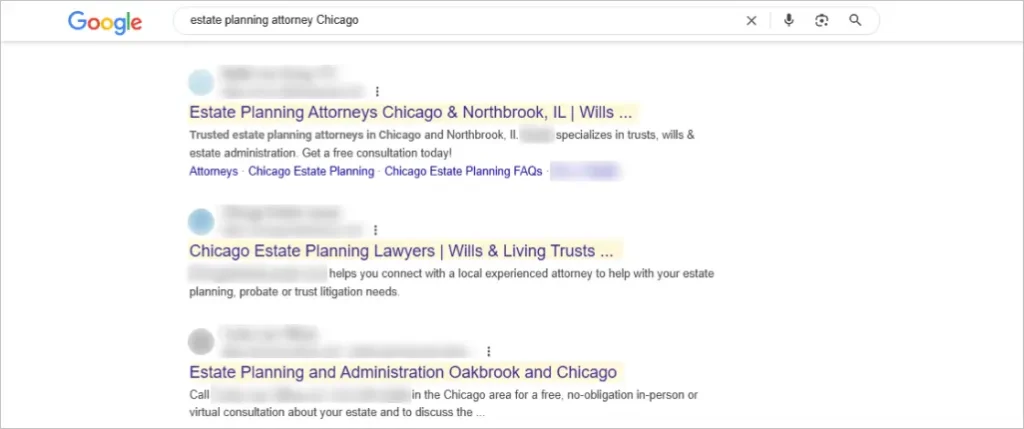
Target phrases like:
- “Estate planning attorney Cincinnati”
- “Slip and fall lawyer near me”
- “How to avoid probate in Florida”
Use the Right Tools (and Your Own Intake Notes)
Skip the guesswork and use:
- Google Keyword Planner
- Ahrefs and Semrush (to track competitors)
- AnswerThePublic (for real search questions)
- Google Search Console (to spot your current wins)
Pro tip: Review what clients say on calls and intake forms — those words are search terms that future clients are likely looking up.
Don’t Only Chase High-Competition Keywords
Remember, SEO for law firms is one of the most competitive markets. Broad keywords like “personal injury lawyer” are heavily saturated. Instead, aim for long-tail terms like “how to file a workers’ comp claim in Nevada” or “do I need a lawyer if I rear-ended someone?”
Tools like ChatGPT or Frase can generate question-based keyword clusters. Try prompting: “List 20 things someone might Google before hiring a divorce lawyer in Texas.” It’s a fast way to uncover real client pain points — and rank for them.
Looking to attract ready-to-hire clients? Learn how to find high-intent keywords specific to your practice area and watch those leads flow in consistently!
3. Gain An Edge with On-Page SEO for Lawyers
You could be the most qualified attorney in town, but if your site structure is unclear or your page titles fall flat, Google won’t rank you — and clients won’t click.
On-page SEO for attorneys is what fuels your visibility. It helps search engines understand your site and shows potential clients why you’re the attorney they can trust.
Craft Click-Worthy Titles and Descriptions
Your title tag is your first impression.
Skip generic lines like “Home | Smith Law Firm.”
Instead, try: “Car Accident Lawyer in Atlanta | Free Consultations | Smith Law”
Follow with a meta description that speaks to urgency and value: “Injured in a car crash? Our Atlanta team fights for maximum compensation. Get a free consultation today.”
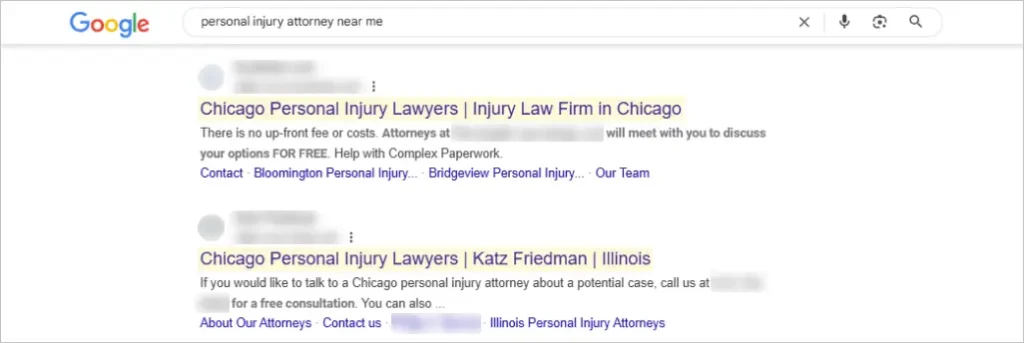
RRemember to keep titles under 60 characters and meta descriptions under 160 — both are essential elements of on-page SEO for attorneys.
Use Clear Headers to Structure Your Content
Break your page into scannable sections using header tags (H1, H2, H3). This is a foundational practice in law firm SEO:
- H1: Personal Injury Attorney in Denver
- H2: What to Do After a Car Accident
- H3: When to Call a Lawyer
This improves readability, strengthens keyword relevance, and boosts your SEO for lawyers.
Link Internally and Intentionally
Guide users and search engines with smart internal linking:
- Link from your “Personal Injury” page to “Slip and Fall Accidents”
- Link FAQ answers directly to your contact or consultation page
Keep URLs Simple and SEO-Friendly
Avoid: /services/personal-injury-8w7%82f76
Use: /car-accident-lawyer-chicago
Tools like ChatGPT, Jasper, or SurferSEO can help generate keyword-rich titles, meta descriptions, and header suggestions quickly. Just remember to revise them for tone, accuracy, and legal compliance.
4. The Role of Legal Content in Effective SEO for Lawyers
If your website content is vague, outdated, or unhelpful, you’re not just missing clicks — you’re losing trust.

Today’s legal clients search online before ever picking up the phone. If your content doesn’t clearly answer their questions, they’ll bounce — and call a competitor who does.
Build a Strategy That Converts
Think of content marketing as the foundation of SEO for law firms. You’re creating helpful, search-optimized content that mirrors your client’s journey. Start with your core practice area and build content for each stage:
- Awareness: “Do I need a lawyer after a minor car accident?”
- Consideration: “Average settlement for whiplash in [state]”
- Decision: “Best personal injury lawyer in [city]”
Is the effort worth it? Absolutely — 48.6% of people research legal issues online before contacting a lawyer.
Create Optimized Practice Area Pages
Every legal service you offer deserves its own dedicated landing page — not just a short paragraph buried on your homepage.
Why? Because clients search with intent. Someone looking for a “DUI lawyer in Austin” expects targeted content. To rank well and convert visitors into leads, your practice area pages should:
- Use geo-targeted keywords in your titles, headers, and URLs (this is key for local SEO for lawyers)
- Answer common client questions relevant to that area of law
- Include trust signals like testimonials, awards, and credentials
- End with a strong CTA like “Schedule your free consultation today”
Whether you’re investing in SEO for attorneys or building a content strategy in-house, these pages are essential for visibility, credibility, and conversion.
Use Your Blog to Educate and Build Authority
If you’d like to build a highly effective lead-generating blog, think about:
- Case law breakdowns in plain English
- How-to guides and comparisons
- Local law updates
The proof is in the numbers: businesses that blog get 67% more leads!
Use Case Studies to Win Clients & Boost Your Law Firm SEO
To highlight your wins and persuade future clients, share well-formatted success stories:
- Problem: “Hit by drunk driver in Cook County”
- Solution: “Negotiated with insurer”
- Result: “$325K settlement — no court intervention”
Reminder: For legal content, always fact-check, cite where needed, and align with Google’s E-E-A-T and YMYL standards. While AI can assist, human expertise is essential to building trust.
Not sure where to start? Read our content marketing guide to attract more clients, and grow your law firm in today’s competitive climate!
5. Use Local SEO to Outrank the Firm Next Door
If someone Googles “car accident lawyer near me” and your firm isn’t in the top 3 local results, you’re invisible. That’s not an exaggeration — 75% of users never scroll past the first page.
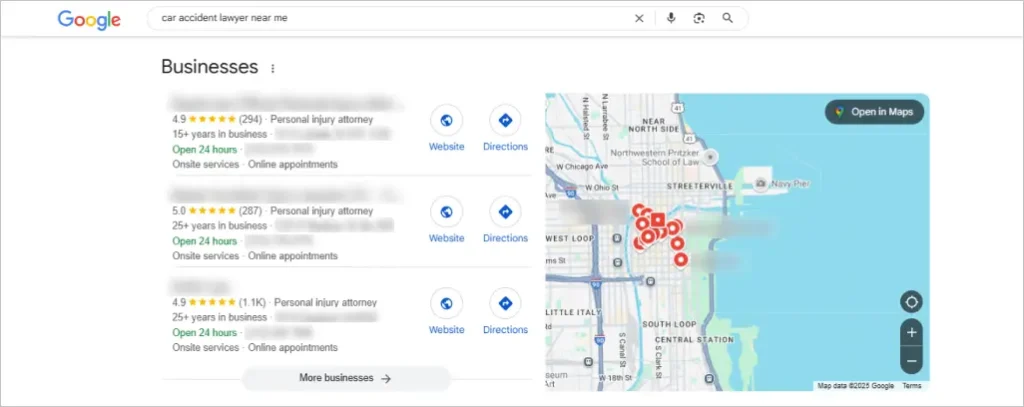
That’s where local SEO comes in. Local SEO is the process of optimizing your online presence to show up in local search results — especially in Google’s “Map Pack” and nearby listings. Here’s how to do it:
Optimize Your Google Business Profile (GBP)
Your GBP is your digital storefront. Make sure it’s fully claimed and optimized with:
- Accurate name, address, and phone (NAP)
- Categories, hours, and services
- A client-focused business description
- Professional photos of your team, office, and logo
Post weekly updates using Google Posts — FAQs, case wins, or events — to signal activity and build relevance.
Consistent Citations to Boost Your Credibility
List your firm (with the exact NAP formatting) across legal and local directories:
Consistency here helps with your rankings and ensures clients find you across platforms.
Boost your law firm’s visibility and credibility by getting listed in the top legal directories for 2025. Explore the full list!
Get (and Respond to) Reviews
84% of people trust online reviews as much as personal referrals.
Encourage satisfied clients to leave reviews on GBP, Avvo, and Facebook. Respond to reviews cordially, even if they are negative. Google values engagement, and so do prospective clients.
Publish Hyper-Local Content
If your content doesn’t reflect your city, Google won’t rank it locally. Create:
- City-specific service pages (“Divorce Lawyer in Denver”)
- Blogs tied to local law updates or FAQs
- Landing pages for each office with local maps, testimonials, and directions
When it comes to local SEO, small details drive big results. Nail your local presence, and you won’t just outrank the firm next door — you’ll become the go-to name in your zip code.
6. Don’t Forget About Your Technical SEO
You could have the best content in your market — but if your site is slow, confusing, or hard to crawl, it won’t rank. Technical SEO is the foundation of your entire digital presence. And for most law firms, it’s the weakest link.
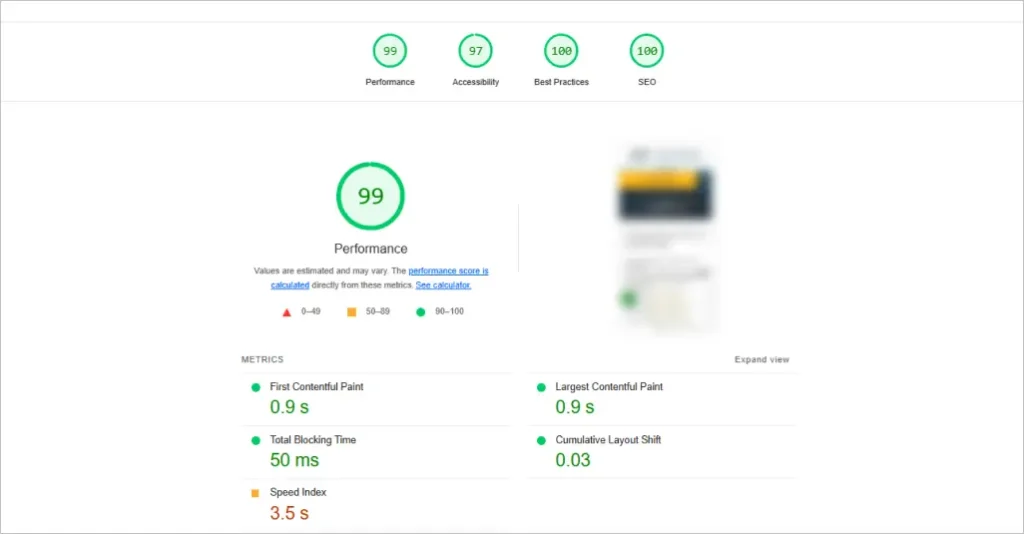
Speed Matters (A Lot)
53% of mobile users abandon sites that take more than 3 seconds to load. A slow page can cost you a client — especially when someone’s urgently searching. To improve speed:
- Compress images
- Minimize code (CSS, JS, HTML)
- Use fast, secure hosting
- Avoid auto-play videos or pop-ups
Mobile-Friendliness Is Mandatory
Over 60% of Google searches happen on mobile. If your site doesn’t load quickly, scale properly, or allow users to tap buttons and forms with ease, you’re not just frustrating potential clients — you’re losing them.
Use Schema to Stand Out
Schema markup helps Google understand and display your firm’s info — like reviews, hours, and practice areas — directly in search results. Implement LocalBusiness and Attorney schema types for better visibility.
Fix Crawlability Issues
If Google can’t find or understand your content, it won’t rank, so ensure:
- Clear navigation
- XML sitemap submitted in Search Console
- Clean, keyword-rich URLs
- No broken or orphaned pages
AI Tip: Run a free site audit using tools like SEMrush, Surfer, or Screaming Frog. AI-powered audits can highlight crawl issues, missing metadata, or speed problems — so you know exactly what to fix first.
7. Use a Solid Link Building Strategy for Your Legal Website
Backlinks — links from other websites pointing to yours — remain one of the most powerful ranking signals in Google’s algorithm. However, not just any link will do.
For law firms, link building is about trust. When high-authority, relevant sites link to your firm, you’ll appear credible to both Google and prospective clients.

Focus on Authoritative, Legal-Specific Links
Aim to earn backlinks from reputable sources within the legal space — not spammy blogs or irrelevant sites. Great places to start include:
- Legal directories like Justia, Avvo, FindLaw, and Martindale-Hubbell
- Bar associations and local legal organizations
- News outlets featuring legal commentary or community contributions
According to Ahrefs, websites with strong backlink profiles rank significantly higher than those without — often by multiple positions for competitive terms.
Guest Post with Purpose
Publishing high-quality guest posts on respected legal or business publications not only earns you links — it positions you as a thought leader.
Pitch topics related to your practice area and community issues, and always include a link back to your site.
Avoid Risky Shortcuts
Buying backlinks, using link farms, or overusing exact-match anchor text can trigger Google penalties and damage your reputation. Stick to white-hat, relationship-driven tactics.
Use AI to Find Link Opportunities
AI-powered tools like ChatGPT or Surfer SEO can analyze competitor backlinks and surface new guest posting or citation opportunities in your practice area. They can also help identify unlinked brand mentions — an easy way to earn a quick win.
But remember, quality beats quantity. A few strong legal backlinks will take you further than hundreds of low-value ones.
Struggling to gain visibility in a sea of competitors? Work smarter, not harder. Learn how to leverage link building to get an edge!
8. Leverage a ‘Client-Centric’ Website Design
Your content and backlinks alone won’t cut it.
Google pays close attention to user behavior signals like bounce rate, time on site, and click-through rate. If users land on your page and quickly hit the back button, Google sees that as a red flag — and may drop your rankings.
Build for Conversion, Not Just Looks
Law firm websites must do more than look professional. They need to guide visitors toward action — whether it’s calling your office, filling out a form, or booking a consultation.
Use clear headlines, trust-building testimonials, service highlights, and call-to-action buttons in the right places. A great layout is intuitive, fast, and made with real users in mind.
Use Smart Chatbots
AI-powered chatbots are no longer a “nice to have” — they’re a powerful conversion tool.

When someone visits your site at 11 p.m. after a stressful legal situation, they’re not going to fill out a form and wait two days for a reply. A chatbot can engage them instantly, answer FAQs, qualify their needs, and even schedule a consultation — all without you lifting a finger.
9. Crunch the Numbers on Your Law Firm’s SEO Performance
If you’re not tracking your search engine optimization performance, you’re flying blind — and potentially wasting thousands of dollars on strategies that aren’t working.
Set Up the Right Tools
Start with the essentials: Google Analytics and Google Search Console. These tools show you how people find your site, what keywords drive traffic, and where visitors drop off. Without them, you can’t measure success — or failure.
Focus on Metrics That Matter
Don’t get distracted by vanity metrics like page views. For law firms, the key SEO KPIs include:
- Organic traffic from potential clients in your area
- Click-through rates on search results
- Bounce rate and time on page (Are people engaging or leaving?)
- Form fills and phone calls driven by organic search
- Keyword rankings for your practice areas and locations
These tell you not just how visible you are, but whether your content is working to convert visitors into leads.
Make Your Reports Actionable
Monthly SEO reports should do more than show numbers — they should tell a story. What’s improving? What’s stalling? Where are the new opportunities? Use that data to adjust your content strategy, site structure, and targeting.
Predict What’s Next
AI-powered tools like PaveAI and ChatGPT Advanced Data Analysis can turn raw data into plain-language insights and even forecast future performance. They highlight patterns and opportunities you might miss — and help you stay ahead of competitors.
When you measure what matters, you can optimize what works.
10. Combine SEO and Cross-Channel Marketing to Reach More Clients
SEO is powerful — but it works even better when paired with the right digital marketing mix. These complementary channels help maximize your visibility, nurture leads, and convert traffic into clients.

Social Media
While social shares don’t directly boost your search engine rankings, they amplify your content’s reach and build credibility. Platforms like LinkedIn and Facebook let prospects see your expertise and personality before reaching out.
PPC Advertising
SEO takes time. Pay-per-click (PPC) ads give your firm instant visibility for high-intent searches like “DUI lawyer near me.” Use PPC to test headlines and offers, then apply those insights to your SEO strategy.
Email Marketing
Not every lead is ready to hire today. Email helps you stay top-of-mind through newsletters, FAQs, and client success stories — nurturing interest until they’re ready to act.
Video Content
Videos increase time on site and engagement. Use short clips to answer FAQs, introduce your team, or explain legal topics. Upload to YouTube and embed them on your site for added SEO value.
SEO is your foundation — but the right channels help you convert faster and grow smarter.
11. Ethical Considerations in Legal SEO
A key part of marketing your law firm online is maintaining integrity, building trust, and following legal advertising rules.
Know Your Boundaries
Every state bar has unique rules governing how attorneys can promote their services.
That includes what you can (and can’t) say on your website, blog, or Google Ads. Claims like “best lawyer in town” or “guaranteed results” may sound persuasive, but they can get you into ethical hot water.
Stick to verifiable facts and focus on outcomes you can back up.
Professionalism Is Part of Your Brand
Your digital presence is often the first impression a potential client has of you. Overly aggressive popups, clickbait headlines, or keyword stuffing can damage your credibility.
Instead, your SEO strategy should reflect the same professionalism you bring to the courtroom — helpful, honest, and client-focused.
Trust-Building Over Hype
Effective legal marketing doesn’t need to exaggerate. In fact, transparency builds trust. Highlighting real case outcomes, including disclaimers, and using plain language that educates clients creates a more powerful, ethical message.
Stay Compliant with AI-Generated Content
Ensure any AI-generated content follows state bar rules, includes proper disclaimers, and is thoroughly reviewed by a human. Never let automation override ethical responsibility.
The takeaway: Ethical SEO isn’t just the right thing to do — it’s the smart thing to do. It protects your license, enhances your reputation, and builds long-term trust with the clients you want to serve.
12. Advanced SEO Techniques and Future Trends
To lock in your SEO success, you also need to be prepared for what comes next.
Voice Search is Growing Fast
With 27% of the global population using voice search on mobile, your firm needs to optimize for how people speak, not just how they type.
This means incorporating natural, question-based keywords like “Do I need a lawyer for a hit-and-run in Chicago?” directly into your content, FAQs, and meta descriptions.
AI and Machine Learning Are Reshaping Search
Search engines are no longer just matching keywords — they’re interpreting intent. Google’s AI-powered systems, like BERT and RankBrain, evaluate context and user behavior to determine which results are most helpful.
Law firms must go beyond surface-level keywords and create rich, authoritative content that answers real questions.
Mobile-First Indexing Is Here to Stay
Google primarily uses the mobile version of your site to determine search engine rankings. If your site isn’t fast, responsive, and easy to navigate on mobile, you’ll fall behind — especially with local searches, where most legal queries happen on the go.
Future-Proof Your Law Firm’s SEO Strategy
Algorithm updates are constant. From helpful content updates to new AI search experiences (like Google SGE), the rules are shifting. Law firms that adapt quickly and consistently produce high-quality, client-focused content will win.
The future of SEO is smarter, more human, and more personalized. Is your firm ready to keep up?
15 Signs It’s Time to Hire an SEO Agency for Your Law Firm
Still trying to do it all yourself? These red flags might be telling you it’s time to call in an agency that specializes in law firm SEO services:
- Your website traffic has plateaued — or worse, it’s declining despite your best efforts.
- Competitors consistently outrank you for your core keywords and local searches.
- You don’t have time to juggle SEO and your legal caseload.
- Traffic isn’t converting — your site gets visits, but not leads.
- You’ve seen a rankings drop and can’t figure out why.
- You’re expanding into new locations or practice areas without an SEO plan.
- Your site has technical problems that you can’t fix alone.
- DIY SEO hasn’t worked — despite hours spent in tools and tutorials.
- You rely heavily on PPC, but your organic traffic isn’t growing.
- You’re facing reputation issues and need visibility to rebuild trust.
- You need a smart content strategy built for today’s SEO and AI-driven search.
- You feel out of your depth when it comes to algorithm updates.
- You’re ready to grow, but your current marketing can’t keep up.
- You want deeper insights and real data to guide your strategy.
- You’ve been hit by a Google penalty or suspect your site was affected by an update.
If more than a few of these sound familiar, an experienced legal SEO agency can help you regain control, get results, and stop leaving leads on the table.
You Paid Six Figures for Law School — Is It Paying Off?
You invested years of your life and over $150,000 in your legal education.
But right now, someone in your city is Googling “lawyer near me”… and hiring your competitor — because they showed up, and you didn’t.
At Comrade Digital Marketing, we help law firms stop bleeding revenue. Our team of SEO strategists, legal writers, developers, and more puts your firm where it matters most — at the top of Google when high-intent clients are ready to hire.
As a proven law firm SEO company, we’ve delivered up to 400% ROI for lawyers across the U.S.
If you’re tired of losing high-value cases to firms across the street:
Book your free SEO consultation today.
Let’s make sure the next case goes to you.
